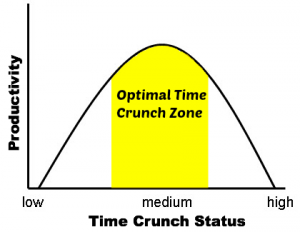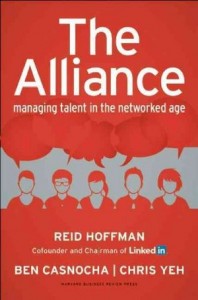 Written by Jenny Blake
Written by Jenny Blake
There’s a conversational crutch we lean on in our society called, “So what do you do?”
Not knowing quite how to engage when meeting someone for the first time, people often resort to this familiar question as a default cocktail party kick off. It’s safe, it’s familiar, it’s lazy.
I’m guilty of it too.
How many of you have asked the question, not really caring about the answer? How many of you have been asked, and as you fumble through your own reply, you watch the person in front of you as their eyes glaze over out of boredom or complete cluelessness about what you’re saying?
The only thing worse than the question itself is suffering through an answer from someone who is miserable in their job. It’s as if their answer sucks the oxygen out of both of your lungs.
Which is not to say that people shouldn’t be vulnerable and share what’s really going on! But there’s a certain energy behind this answer that can either be soul-sucking, creating a conversational dead end, or generative, which opens the door for further dialogue.
In general, we just want to connect with each other on a genuine, authentic level, on shared passions or intellectual banter. We want to feel naturally curious and engaged, freed from the shackles of rote networking.
My theory: no one really cares what anyone else does, at least most of the time.
With one caveat; when what you are saying is bubbling with magnetic enthusiasm, that is contagious.
The Importance of Personal Projects
Harvard professor Brian Little says that the way we answer the question, “How are you?” depends on whether we have a compelling “personal project” that excites us—one that is connected to our core values and has meaning and significance.
Now that’s a question worth wracking our brains for.
Here’s a new game plan as holiday party schmoozing approaches: it starts with doing something worth talking about. Something with spice, vigor, excitement and a sprinkling of risk. Something with swagger.
For most of us, “What do you do?” conjures up whatever it is that pays the majority of our bills. But how would you answer if you pretended the question is, “So what are you most excited about right now?”
Flip the Conversation Switch
Below are a few recent experimental intentional conversation swerves of my own (because we can’t expect everyone else to read our minds and ask new questions). They’re still not perfect, but they get me more excited, which hopefully makes for a richer conversation all the way around:
Cocktail party questioner: So what do you do?
- Before: I’m an author and a speaker. (BOOO-RING!)
- My new answer: I’m fascinated by the intersection of mind, body and business . . . I love creating systems and templates for all three.
Question: “So you’re a motivational speaker?” Or “So you’re a life coach?” (Often said with a heaping dose of judgment and eyes scanning me up and down.)
- Before: Yes, I’m a speaker and I do career and business strategy coaching and consulting. (BOOO-RING!)
- My new answer: Yes, and speaking is what I’m most excited about right now. I love helping people through big transitions, to feel less intimidated by the question “What’s next?” I also see myself as a translator between smart, motivated people and the big technology companies they work for.
Question: So what book did you write?
- Before: I wrote a book called Life After College; it’s like a portable life coach for twenty-somethings. (A recent reply I received that got my blood boiling: “Oh, how cute!”)
- My new answer (not wanting to talk about the past so much as the future): Well, I’m really excited about my next book, The Pivot Method, which I’m now writing, on how to navigate change and be more agile within our rapidly-evolvoing economy.
Question: So what do you do?
- My new answer (depending on who I’m talking to and the type of event I’m at, I pick just one niche project): I’m developing a meditation app called Lucent—it’s a five-minute morning ritual for people who consider themselves “meditation curious.” We just created a free 4-day course that you should check out!
These conversations can be the litmus test for magnetic personal projects:
- Projects you’re thrilled to talk about, where it feels like you’re letting the person across from you in on a secret
- Where others (including you!) feel inspired by not just what you’re doing but how you’re talking about it
- It means you take charge of the conversation, and that starts with having something you’re jazzed to talk about in the first place.
So instead of asking, “What do you do?” as your next conversation-starter, try “What are you most excited about right now?” (Hint: if it feels awkward, you can even explain it first by saying, “Normally I would ask you what you do, but I’m more curious what you’re most looking forward to working on these days?”)
Whether you’re self-employed or you work for someone else, we can all benefit from a compelling project (or two) that we’re stoked to talk about, and more importantly, to spend our precious time and energy on.
Stay tuned for Part Two, where I’ll share four criteria behind choosing successful side projects.
I’d love to hear from you in the comments:
What personal project/s are you most excited about right now?
Disclosure: This post was written as part of the University of Phoenix Versus Program. I’m a compensated contributor, but the thoughts and ideas are my own.
About Jenny

Jenny Blake is the author of Life After College and the forthcoming book The Pivot Method. She is a career and business strategist and an international speaker who helps smart people organize their brain, move beyond burnout, and build sustainable, dynamic careers they love. Jenny combines her love of technology with her superpower of simplifying complexity to help clients through big transitions — often to pivot in their career or launch a book, blog or business. Today you can find her here on this blog (in its seventh year!) and at JennyBlake.me, where she explores the intersection of mind, body and business. Follow her on Twitter @jenny_blake.





 Jenny Blake is the author of
Jenny Blake is the author of 

 At first glance,
At first glance, 



 Written by
Written by 


